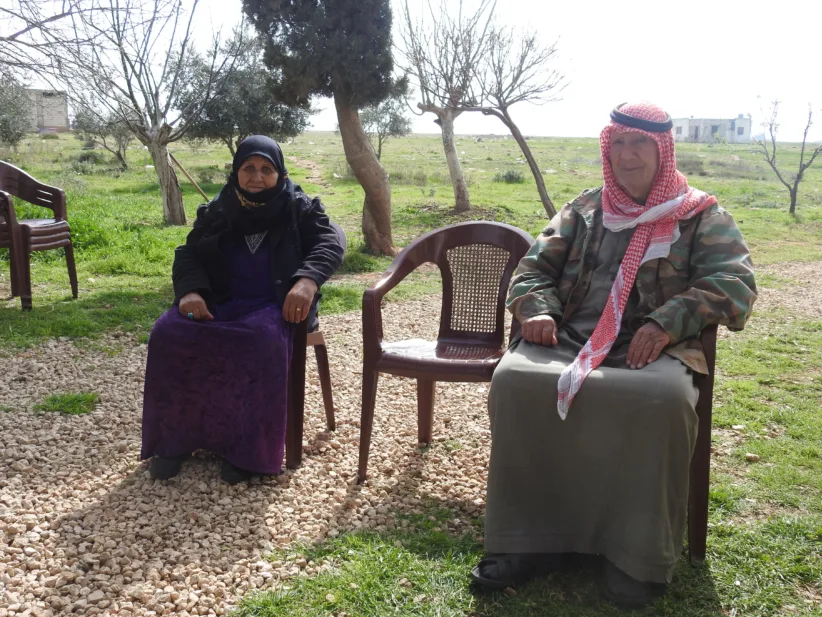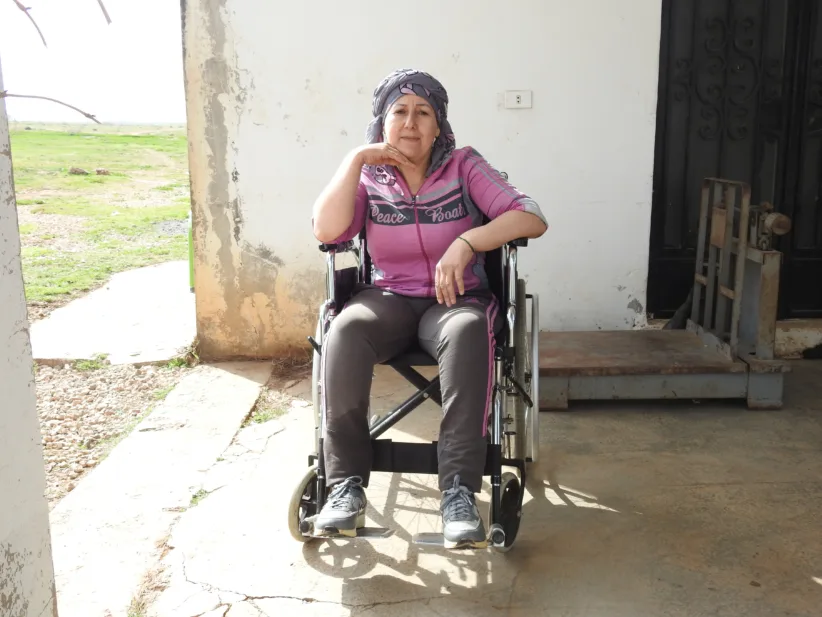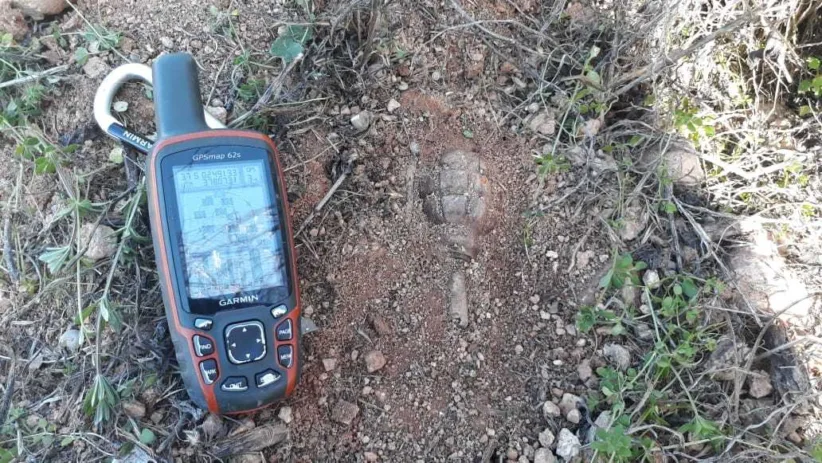The Remnants of Two Wars
There’s a village in the North-Eastern part of Lebanon that has witnessed two recent wars, 24 years apart. Thousands of cluster sub-munitions were dropped in the area, first in 1982 and later in 2006. Many didn’t explode on impact.
By: Hala Amhaz
Other than a few chirping birds indicating the spring morning, there was a calming silence in Chaat village as Bader sat on his chair with a rake in his hand gazing towards the backyard garden. As I had carefully approached from his rear view, trying to avoid surprising him, he turned gently, wishing me “sabah el kheir”, an Arabic morning greeting best translated as “a morning of peace to you”.
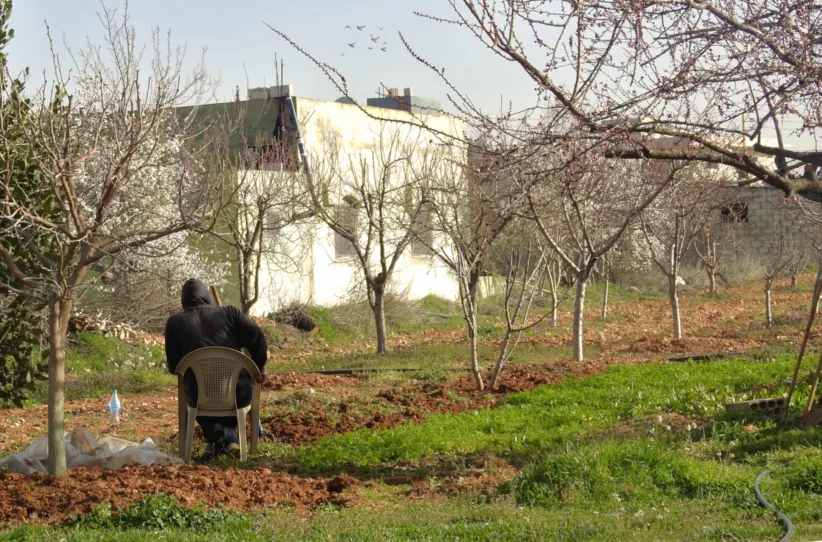
Bader lives in Chaat, a small village in North-East Lebanon firstly hit by cluster munition strikes during an air battle between the Israeli Defense Forces and the Syrian Army in 1982, and then again in the 2006 Lebanon War.
Bader’s father, Mohammad, was a shepherd who owned a piece of land next to the family house. After the cluster strikes in 1982, Mohammad used to collect dozens of unexploded sub-munitions on his herding journeys, put them in bags carried by a donkey and planted them around the fence of his land for “protection”.Given the risk for Bader’s family and neighborhood, clearing this land is now one of the high priority tasks for Norwegian People’s Aid in Lebanon. Not as “lucky” as his grandfather, Bader told about his accident back in 1990:
I was out ploughing the land with my tractor, and must have hit a sub-munition. The fragments penetrated my back, and for a moment I thought I died.
The accident left Bader partially disabled. He is no longer able to properly work as a farmer, and had to hire workers to plough the land two years ago. “Carefully digging 5 cm at a time, we discovered two sub-munitions. We dropped them in the well over there”, he explained, pointing out towards the area at the back of his garden.
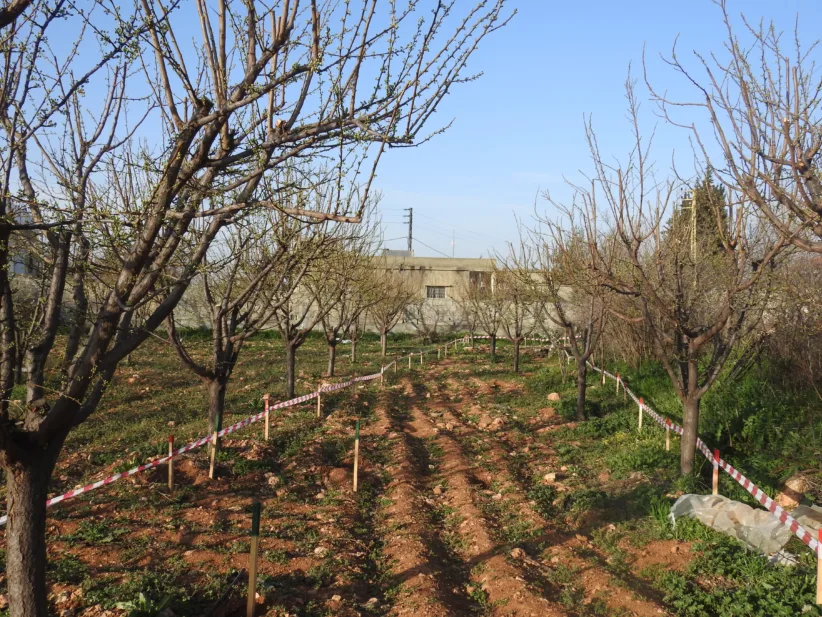
As we finished our meeting, Bader took us on a shortcut to meet his nephew Ali, who would also have an interesting story to share. After jumping over a low ledge into the backyard terrace of Ali’s house, his wife, Rabab, opened the kitchen backdoor with a heartfelt welcoming. While waiting for her husband to come back, she prepared coffee for us as we chatted.
Ali soon appeared, and after hugging the kids he joined the conversation. He had a noticeably sincere smile and enthusiasm to share local stories about cluster accidents, including his own. “If we had been able to farm the contaminated land, we could actually have used our own electricity to pump water”, Ali explained. “I often thought about ploughing it but I wouldn’t dare” he added. Both Ali’s family and his brother own a piece of land in the area NPA is clearing, but because of the danger, they rented another parcel for farming about 5 km away. “On top of the rent we also need to pay for fuel”. This is yet another example of how contamination can cause not only physical, but also financial obstacles by hindering livelihoods.
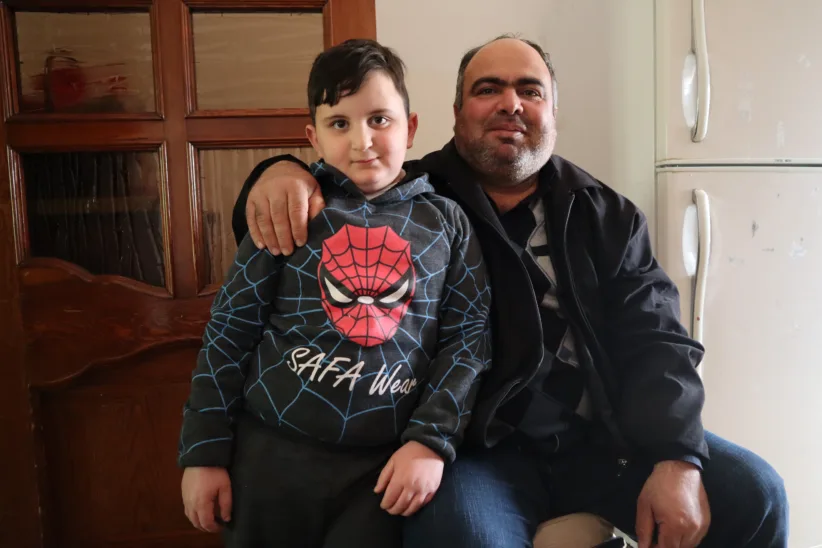
“And what about the neighbors and people living in the area?” I asked, “do you know if the remnant unexploded ordnance have caused any injuries or deaths?” This question led me to a third, admittedly more sorrowful interview.
An hour’s further drive through empty roads and rocky mountains, lives an old couple. Apparently, they moved back to their old house in Hermel to be less reminded of what happened in Chaat.
As I reached and parked, I noticed two ducks drinking from a tiny lake in the open front yard, a scene I absently watched while preparing myself for the sensitive questions I was about to ask.
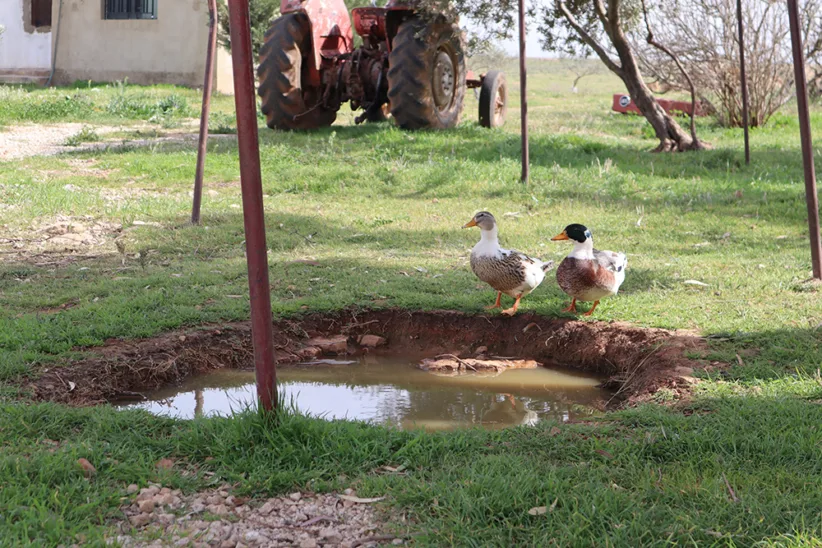
Em Ali came outside to greet me before I knocked on the door. Time and pain seemed to have taken a toll on her health, yet she greeted me with her utmost energy. Em Ali lost two of her boys – Ahmad, 17 & Mohammad, 10 – on the last day of the war in 2006 to an unexploded sub-munition.
“They went to take the sheep, we lived next to the flock. I heard a sound that was as loud as an air strike. I walked and walked, but my husband arrived before me. I heard the scream of Ahmad, who was alive for a bit. Mohammad directly died. A few sheep died too. I wish God had taken all the sheep instead of their lives. Once I reached the hospital, I looked at them, telling myself these are not my kids. The mud on their faces, on their clothes…” she said with tears in her tired eyes. Asked how the accident happened, Em Ali told me:
the kids didn’t know what it was. They were passing by with the sheep and stepped on a cluster bomb by mistake.
Sadly, the story does not end here. As we spoke, Em Ali’s daughter entered the room in a wheelchair. Sensing my curiosity about her condition, Em Ali responded before I asked: “Amira was going to the cemetery every single day to visit her brothers' graves, she wasn't dealing with the accident very well. One day she found a gun that the family kept in the house for protection. She pointed it to her lower chest and shot herself. She’s disabled now”.
Cluster sub-munitions have cost this family two young lives, and broken a third one. Bader said it best: “It’s a time bomb, you don’t know when it will explode and hurt someone”.
In cooperation with the Lebanese Mine Action Center and Mines Advisory Group, Norwegian People’s Aid have deployed two demining teams in Bader’s garden. Bader and his brother Ali are eagerly waiting to gain safe access to their land as soon as clearance is over: “immediately!” was Ali’s excited answer when asked about using the land again. As for Em Ali and her husband, clearance will not bring back their two boys or the joy of their daughter. Yet knowing the children of Chaat will be safer now, might help heal the wound.
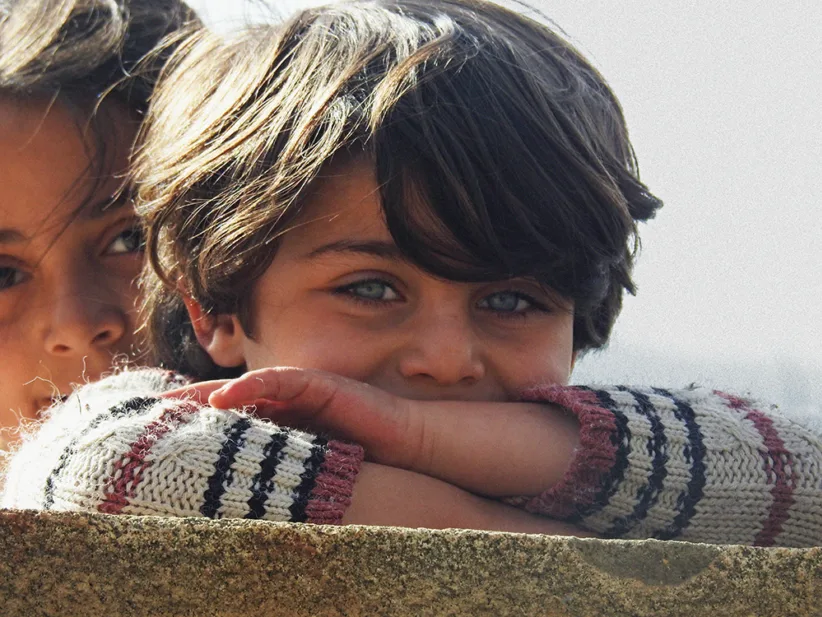
Fact Box
On the 24th of March 2020, NPA deployed two Multi-Task Teams of four deminers each, on this 1,900m² task located in Chaat, Baalbek. The first team is funded by the U.S. Office of Weapons Removal and Abatement (PM/WRA) and the second by the European Union, through its Instrument contributing to Stability and Peace (EU IcsP). Both projects are implemented in the region in cooperation with the Lebanese Mine Action Center (LMAC) and its regional branch, in partnership with Mines Advisory Group (MAG).
On this specific task, NPA Multi Task Teams found one unexploded hand grenade that was subsequently destroyed by the Lebanese Armed Forces (LAF). In total, 81 beneficiaries (12 women, 42 men, 14 girls and 13 boys) will directly benefit from NPA’s clearance work. Six families, including Bader and Ali’s as well as hired agricultural workers, will be able to reuse the land and harvest plums, pomegranate, figs and olives from trees planted a few years ago.

